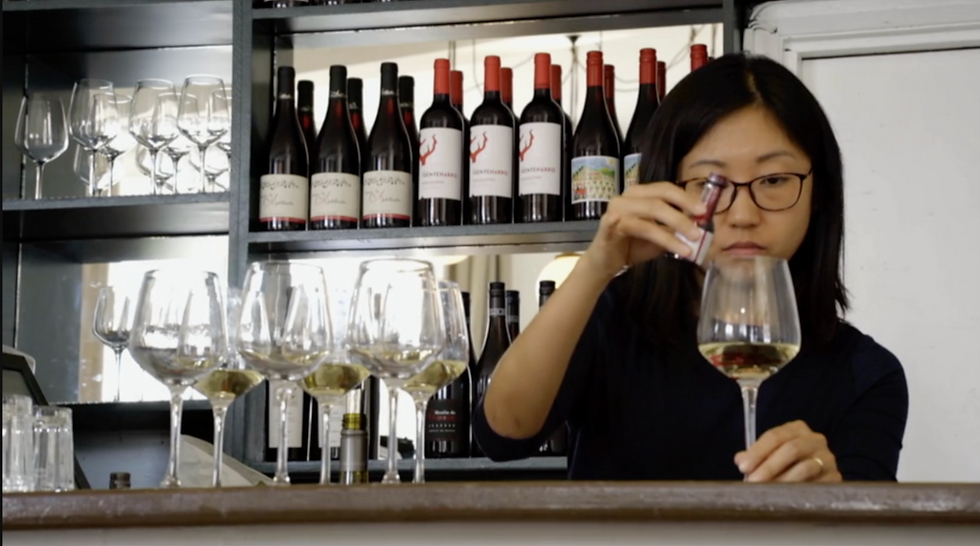Do My Eyes Deceive Me? Gorillas & Naked Emperors
- Sophie Griffiths
- Jun 30, 2020
- 4 min read
Updated: Aug 15, 2022

Sensory Self Discovery: The Art of Re-Emergence
Sensory deprivation has become the norm these last few months. The sensory overload of modern life was abruptly switched off, for better or worse.
Our realities became insular, much of it experienced through a screen, physical touch was limited, mealtimes became repetitive and adventure was strictly off the cards. Instead, our dreams become more vivid, as we dealt with a collective trauma.
Yet, as we start to reemerge, just 9% of us would like life to resume to normality. We’ve glimpsed something better. This period of enforced reflection and slowing down has created a shift - we all feel it. No-one wants to return to business as usual.
The experiential exchange rate has been reset. What we once took for granted is novel once more.
As the world beckons us out again, into the world of restaurants, bars, travel and tourism that so desperately need our participation ... how we can hold onto this newly re-valued currency of experience?
In this short series I’ll be shedding light on each of our sensory ‘inputs’.
As we open up our senses to new physical experiences once again, new sights, smells, tastes, sounds, sensations, is there a way we can do it… better?
This is at the heart of my philosophy of ‘sensory self discovery’ - the notion that by better understanding our senses - how they construct our perceptual reality - can we begin to experience that reality more fully?
1. TO SEE
GORILLAS & NAKED EMPERORS
“Compared to the last one, it’s very subtle”. “I hated the white; I much prefer the Rosé”.
“What I get from this is mostly red fruit aromas. Some refreshing redcurrant for example, strawberries, raspberries.
“I get a kind of hint of spiciness to it”.
“And the white?” Asks the moderator of the wine enthusiasts in the room, “Citrusy notes, a little hint of tropical fruit”.
“But what if I told you, these are both the same wine? The only difference is food colouring”.


Ouch. It’s easy to imagine how much of an idiot you’d feel being the victim of this oft-repeated trick. Unsuspecting tasters - even experienced ones - will confidently report sensing red fruit flavours, when really, all that’s changed is the colour.
But was the proverbial Emperor naked? Were they just faking it? Or perhaps were they really experiencing red fruit flavours? Before you cast judgement and write off all wine professionals as frauds, let me introduce The McGurk Effect.
This freaky illusion shows the principle of Visual Dominance, how human perception & cognition relies heavily on visual information. In humans, it’s our most powerful sense. (For a bat, it would be their sense of hearing, in a dog, their sense of smell and hearing far outweighs their sense of sight - dogs actually experience a less colourful world than humans as they have fewer cones).
It’s no wonder we have the expression “Seeing is believing” - so integral is our sense of sight to our experience of “reality”.
But the McGurk effect shows us how easily the brain is fooled. We know he is saying BAAAH. But we can only hear FAAAH, because that’s what we see. When we close our eyes we hear the ‘real’ audio. But as soon as we open them, the brain overrides the conflicting audio input and we’re back to hearing FAAAH. The freakiest thing is, even when we know what’s happening, once the illusion should be broken, the illusion persists.
Our conscious mind can only handle and process so much information at any one time. The brain and the visual cortex have become so powerful at protecting us from information overload it can cause us to become myopic and not see extraordinary things that are happening right in from of our eyes.
Have a look at this attention test by Daniel Simons and Christopher Chabris:
Incredible isn’t it?
Life is full of wonderful peculiarities happening right in front of our eyes. So how can we better tune into them? One way is to remove the visual sense from the equation.
Try tasting wine blindfolded. A staple experience at any Vignette Wine event. Get someone to pour you a mystery wine and give yourself a purely olfactory and gustatory experience. You might be surprised by what you taste - what descriptors you come up with - and indeed how hard it is to tell apart wines of even different ‘colours’ (especially when served at the same temperature).

The second thing is to try slowing down. Really slowing down. What’s the first thing we do when we have a bored moment, stand in a queue, or sit down somewhere? Grab our phones and start scrolling. Guilty. Instead try challenging yourself to just… look.
Next time you’re in a restaurant, when you get that first dish served up to you, take a moment just to look at it. The difference between eating at home and in a restaurant is being the recipient of an artwork where the plate is the canvas and the artist is the chef. What colours are at play? Tonal, complimentary, contrasting? What shapes and textures? Is anything in motion - melting, oozing, steaming, condensing?
This is a technique from Forest Bathing, the Japanese art of Shinrin Yoko. You sit in stillness (harder than you think) and observe what is moving around you. It sounds so simple but it is incredible - revelatory even - what comes to life.
There are metaphorical gorillas everywhere.





Comments